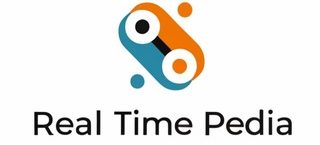
Unlocking the Power of Home Equity: A Complete Guide to HELOC Loans
If you’re a homeowner looking to tap into your home’s equity for extra cash, a HELOC loan might be just what you need. Whether it’s for home improvements, debt consolidation, or major expenses like education or medical bills, a HELOC offers flexible funding with competitive interest rates. Let’s break down what a HELOC is, how it works, and why it might be the right option for you.
💡 What is a HELOC Loan?
HELOC stands for Home Equity Line of Credit. It’s a type of revolving credit secured by the equity in your home. Unlike a traditional loan, which gives you a lump sum of money, a HELOC works more like a credit card—you can borrow, repay, and borrow again as needed during the draw period.
🏠 How Does a HELOC Work?
- Determine Your Equity
Equity is the difference between your home’s current market value and what you still owe on your mortgage. Lenders typically allow you to borrow up to 85% of this equity. - Draw Period (Usually 5–10 Years)
During this time, you can borrow funds as needed. You may only have to pay interest on the amount you’ve borrowed, which helps keep monthly payments low. - Repayment Period (Usually 10–20 Years)
After the draw period ends, you begin repaying both the principal and the interest. Monthly payments usually increase during this time.
Pros of a HELOC Loan
- Flexible Borrowing: Take money out only when you need it.
- Lower Interest Rates: Often lower than credit cards or personal loans.
- Interest May Be Tax-Deductible: If used for home improvements, you may qualify for a deduction.
- Great for Ongoing Projects: Perfect for home renovations done in stages.
⚠️ Cons to Consider
- Variable Rates: Your interest rate could go up over time.
- Risk of Foreclosure: Your home is used as collateral—missed payments can put it at risk.
- Temptation to Overspend: Easy access to funds can lead to unnecessary borrowing.
🧾 Common Uses of a HELOC
- Home renovations or repairs
- Emergency expenses
- Medical bills
- College tuition
- Debt consolidation (especially high-interest credit cards)
🏦 How to Qualify for a HELOC
To get approved for a HELOC, lenders typically look at:
- Your credit score (usually 620+)
- Your debt-to-income ratio
- Your home equity
- Your income and employment history
🔚 Final Thoughts
A HELOC loan can be a smart and flexible financial tool when used responsibly. It’s especially useful for homeowners with significant equity who need access to funds over time. Just remember, since your home is on the line, it’s crucial to borrow wisely and make payments on time.
Before you commit, compare offers from different lenders, read the fine print, and make sure it aligns with your financial goals. A little planning now can lead to big savings—and peace of mind—later.
Thinking of applying for a HELOC?
Speak to a trusted mortgage advisor today to explore your options and unlock the full potential of your home equity.








